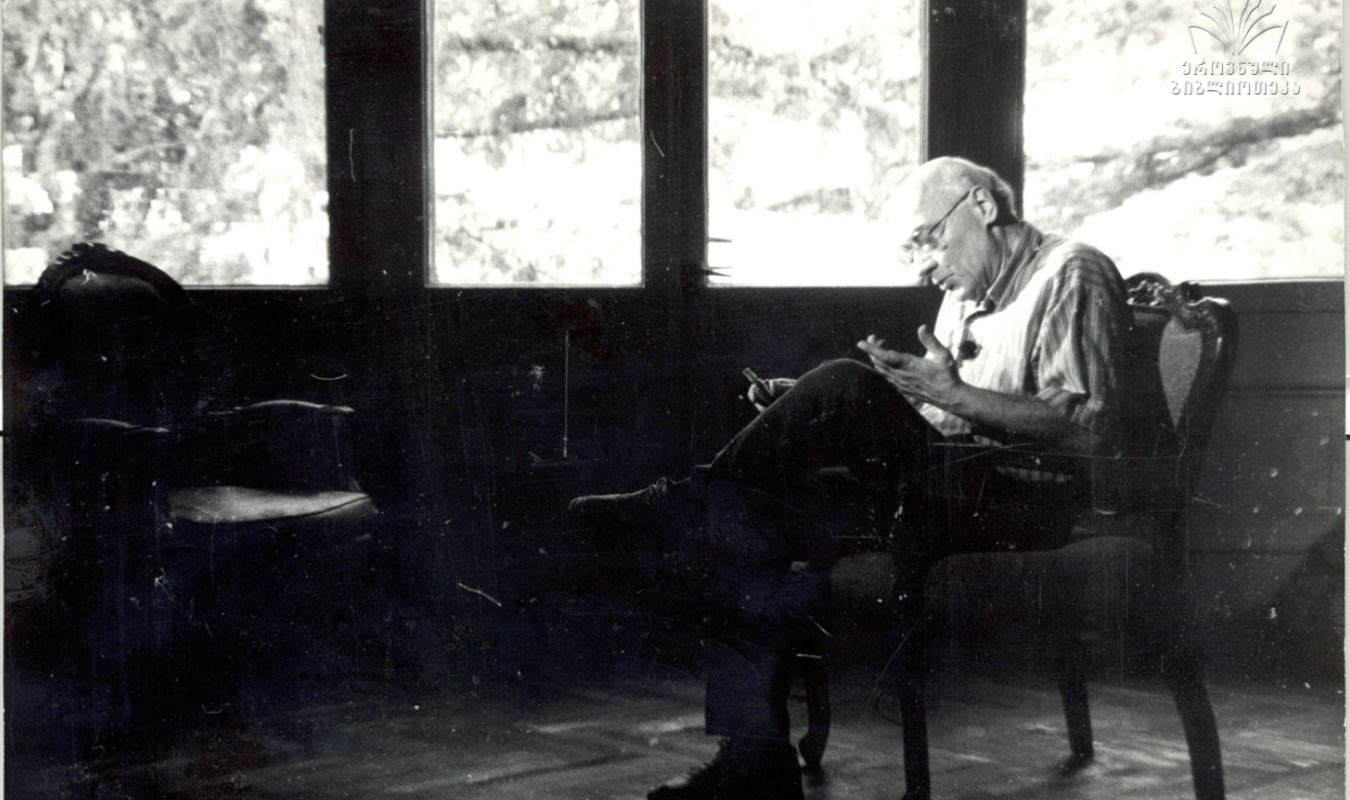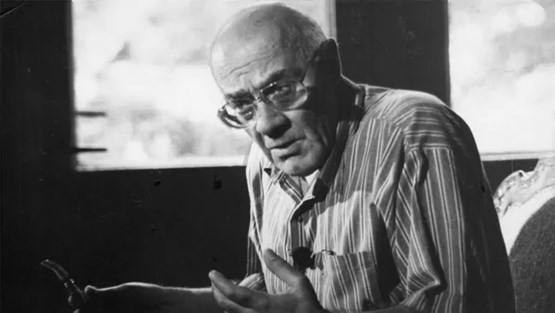
Repeating Mamardashvili | Essay 9 – Voices
Just recently I had a conversation about the difference of linear versus parallel writing. I had printed out all previous 'Repeating Mamardashvili' essays with the essays covering half a page in landscape format. On the other half I had started to put down notes and short pieces of text as either response or continuation of what I had written. This patchwork seemed to me as a way to grasp the essence in its most beautiful, multifaceted way; until that conversation when a linear approach with a beginning and an end of both argument and thought was argued to strengthen, but even more than that, to specify by building up not only one aspect after the other but one aspect upon and interconnected with the other.
I like the mess that the parallel back and forth creates but I am wondering if that can only hold true for sketches, for creating a base for a text then to be written. At least for me. Since I do know of writers who manage to touch upon something in a short blog entry for example and this something doesn't just become another tessera in the overall mosaic but is a constructive part of a linear thought development. I am, obviously, thinking of writers like Mark Fisher.
When I took a look at all my notes while wondering where and how to extract a linear sequencing, I immediately identified, again, the question of sound at the beginning. Sound and/or rather, in this specific case, the voice, which brought me to Merab Mamardashvili's lectures in the first place. A voice, his voice that I now recognize right away, even though I still just understand bits and pieces, if, and only if I listen very intentionally. A bit like in the wonderful, repeatedly quoted story at the beginning of Mladen Dolar's book A Voice and Nothing More:
'There is a story which goes like this: In the middle of a battle there is a company of Italian soldiers in the trenches, and an Italian commander who issues the command "Soldiers, attack!" He cries out in a loud and clear voice to make himself hear in the midst of the tumult, but nothing happens, nobody moves. So the commander gets angry and shouts louder: "Soldiers, attack!" Still nobody moves. And since in jokes things have to happen three times for something to stir, he yells even louder: "Soldiers, attack!" At which point there is a response, a tiny voice rising from the trenches, saying appreciatively "Che bella voce!" "What a beautiful voice!"
I listen to Mamardashvili like this sometimes. Even, when I listen to his lectures with the translations as a kind of partitura in front of me. At first I follow the text in order to make annotations in the translations about intonations, pauses, emphasis… just to get carried away at some point, what a beautiful voice!
There are novels like that, if the comparison works, which are written in the tradition of oral storytelling. While reading, one actually hears the voice of the narrator, one listens to this voice rather than actually reading. Yaşar Kemal's four İnce Memed books are, for me, one of the most striking examples. And even though I read these books in translation, it was the author's, the narrator's voice that told the story to me, never, seemingly, my reading.
There have been various studies about comprehension when listening to lectures. Without taking notes of the content or while taking notes by hand or on a digital device. And though those studies point out that taking notes by hand helps with following the arguments the most, I wonder about the aspect of 'just' listening, maybe even without grasping any of the content, to the beautiful voice, and the emotions or connotations or references set free beyond this actual content. Could there be a correlation, an understanding of sorts? Could one ever find out?
Author: Katharina Stadler
Dolar, Mladen. A Voice and Nothing More. Cambridge/London: MIT Press, 2006.





